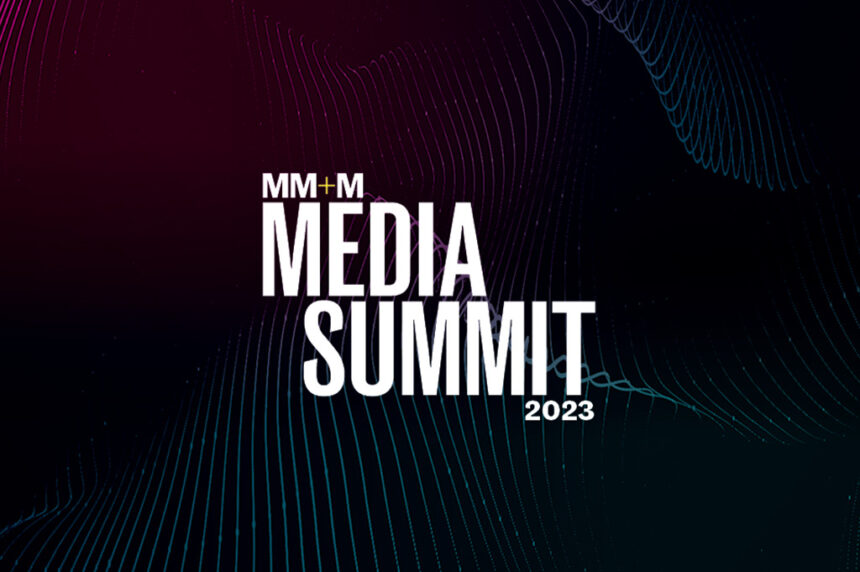Leading voices from across the health media ecosystem came together at Convene in New York City for a day of dynamic conversations about the state of the industry at the 2023 MM+M Media Summit.
Throughout the day, leaders opined on industry trends likely to continue into 2024, underscore pain points in pharma advertising and shared best practices on communicating with patients and healthcare professionals (HCP).
Mirroring broader society, there was plenty of talk about the future of artificial intelligence, recognition of the impact of health equity and analysis of how social media will continue to disrupt the media landscape.
Below are three key takeaways from the 2023 MM+M Media Summit.
1. Place content where your audience is
Having timely, relevant health content is important, but ensuring that it is being delivered in the most appropriate way through the most effective channels is also crucial.
Dr. Juan Rivera, chief medical correspondent at Univision, discussed publishing content in a quick and accessible manner on social media in order to combat the prevalence of medical misinformation online.
Rivera noted that many times when healthcare news breaks, especially during the COVID-19 pandemic, he would go to his social media accounts to engage directly with his audience to keep them well-informed and up to date.
This strategy ultimately helped him cultivate a sizable social media following and aid in reestablishing trust with consumers. He said that HCPs and pharma brands must realize that they have lost some credibility with patients over the years and have to work to earn it back.
The loss of trust was due to a myriad of reasons, but one factor Rivera singled out as a driver for this widespread skepticism is the convoluted nature of the American healthcare system.
It’s no surprise then, Rivera argued, that some consumers have embraced medical misinformation that is presented to them in a cheaper, more easily digestible way on social media.
Another piece of advice Rivera imparted to the audience may seem like common sense but holds a lot of value: meet your audience where they are.
His advice not only applies to which medium they are consuming content through but also the cultural and language considerations at play, too.
For his work on Univision, Rivera said he makes sure to communicate his stories and insights in Spanish so as to have a larger impact on his Hispanic target audience.
And when it comes to the changing media consumption habits taking place not only across the U.S. but the world at large, Rivera noted that the audience “understands their power.”
2. Point of care marketing continues to evolve
There were two panels focused on innovations in programmatic technology and the ever changing nature of point of care (POC) marketing.
Reaching patients and HCPs at the POC previously took a one-size-fits-all approach, but executives at the conference repeatedly underscore the fact that this type of marketing now emphasizes inclusivity and personalization above all else.
That means leaning into digital, understanding where people want to receive timely messages and ensuring there is continuity in terms of communicating throughout the care journey so that outcomes are improved.
3. Tackling medical misinformation
A constant presence throughout the conference was Dr. Geeta Nayyar, who participated in a panel on health equity and spoke at a panel promoting her recently published book, Dead Wrong: Diagnosing and Treating Healthcare’s Misinformation Illness.
Nayyar emphasized the critical role HCPs have in informing healthcare brands about how they should approach medical misinformation, why they should be proactive in communicating with consumers in order to give them the most accurate information and how her mission to care for patients was borne out of her career start as a rheumatologist.
The Third M column that will be published on Tuesday will feature a conversation with Nayyar about her inspiration for writing the book, how she has promoted the best-seller through an international tour and what her future plans are for providing meaningful thought leadership on the subject of medical misinformation.








